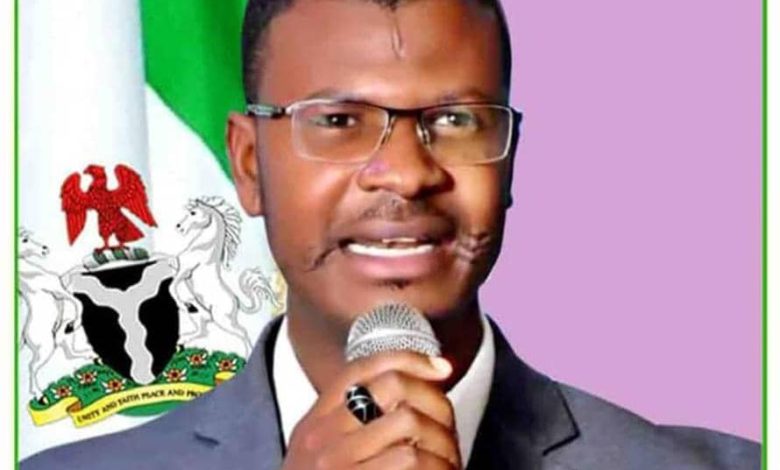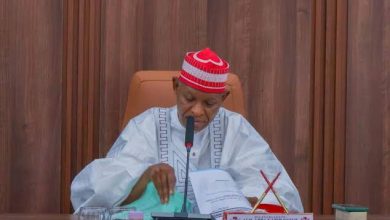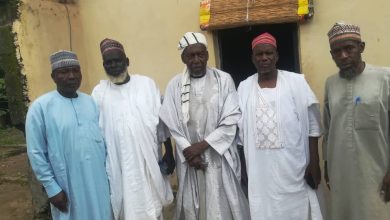
When people embrace labels like ‘blind followers’ or ‘sheepish supporters’, they are not practicing democracy, they are surrendering their humanity. And democracy cannot thrive without independent minds.
First of all, I must express my gratitude to my teacher, Dr. Auwalu Anwar. From his article titled ‘From Sawaba to Asara’, I gained deeper knowledge and clearer understanding of who Kwankwaso is and what Kwankwasiyya represents. That lecture opened my eyes and strengthened my resolve to write this short reflection, particularly on how blind and sycophantic politics has taken root among our people, from leaders to followers.
Blind politics is not limited to the reckless words of followers who degrade their own human dignity. It also includes the irresponsible utterances of political leaders directed at their followers – words which sometimes insult human beings whom Allah has honored, corrupt public morality, and promote thuggery and disrespect among the youth.
Read Also:
Kano’s Political Probe: Ganduje’s Legacy Versus NNPP’s Scandals
The word of our Creator provides a key reminder about the honor and dignity of human beings. Allah Himself declared that He has ennobled mankind. In the commentary of scholars, this means that man is not to be humiliated or debased. If we accept this truth, then why should we call ourselves “blind” (MAKAFI) when Allah has not afflicted us with blindness? Why should we label ourselves “sheep” (AWAKAI)? The truth is, this is nothing but a reckless way of expressing loyalty to a leader within a political system, without considering the danger such behavior poses to our very lives.
To be fair and historically accurate, Kwankwaso and his followers were not the first to engage in this destructive culture of blind loyalty. It dates back to the Second Republic, during the administration of the late Abubakar Rimi, the first civilian governor of the old Kano State. In fact, many of the political strategies and public speaking style that Kwankwaso employs today were learned from the late Abubakar Rimi Limamin Canji “Leader of Change.”
Read Also:
Kano Gets 5,684 Slots for 2026 Hajj, Deposit Fixed at N8.5m
At the height of Rimi’s popularity, he also had blind followers – some went so far as to claim that even if Rimi were to jump into fire, they would follow him. This should not surprise anyone, considering the level of popularity Rimi enjoyed, which Kwankwaso has not yet attained. Several scholars and historians confirmed this. Among them is Sheikh Ibrahim Khalil, Chairman of the Kano Council of Ulama and a former gubernatorial candidate under the ADC, who affirmed this point during an interview I conducted with him on ‘Bakon Mako’. Likewise, Musa Nuhu ‘Yankaba, former publicity secretary of the NNPP in Kano (before the party split), also confirmed this claim after parting ways with Kwankwasiyya. He is now the secretary of the NNPP’s “fresh faction” in Kano.
Even before Rimi, traces of this culture existed – some information even suggest that during the days of Mallam Aminu Kano, known as Tabo and Santsi, there were also leaders whose reckless words were tolerated and who enjoyed blind loyalty from their followers.
Bringing it closer to our own time, we have witnessed political leaders make degrading remarks filled with insults against fellow human beings. For example, recently the Kano APC chairman, Abdullahi Abbas, became notorious for his slogan “ko da tsiya ko da tsiya-tsiya” (“by force or by whatever means”), in addition to other foul remarks directed at his political opponents. Similarly, Alhassan Ado Doguwa, member representing Doguwa and Tudunwada Federal Constituency, once assembled his followers and asked them: “Who will you vote for in 2023?” When they shouted “APC,” instead of him stopping there, he went further and abusively declared: “If you don’t vote APC, then you will vote for your father!”
What is most shocking is that none of his associates or followers objected or cautioned him. Instead, they cheered him with excitement. This clearly reflects how blind politics has gained ground among leaders and followers alike.
Even in neighboring states, we see similar patterns. In Jigawa, for instance, Governor Mallam Umar Namadi Ɗanmoɗi has supporters who go to great lengths to portray him as infallible: asserting that everything he does is always correct. They lavish him with praise, often saying, “Mallam yana kan daidai” (“The Mallam is always right”).
Yet, as a scholar, Governor Namadi surely knows the truth: no human being is without error. Only Allah Almighty and our beloved Prophet, peace be upon him – are free from mistakes.
So why, if he truly understands this, does he allow his supporters to keep feeding him such flattery? Why does he sometimes show visible pleasure when they claim he is always right? This is the essence of political sycophancy: the supporters know they are speaking falsehoods, the leader knows the lies, yet both tolerate them for the sake of politics.
But where the situation becomes most alarming is within Kwankwasiyya, in Kano. Many of its members have openly accepted labeling themselves not only as blind followers ‘MAKAFI’, but also as sheep ‘AWAKAI’, just to please their leader. The piercing looks Kwankwaso gives when addressing his “blind” and “sheepish” supporters, along with the language he uses, convinces them that he is their only political idol. They are ready to accept anything he does as right.
In my archive, I came across a video where Kwankwaso gathered people and boasted about his contributions to the education of citizens from poor families – who he claimed he turned into “people of worth.” On the basis of this, he openly declared: “Any okada rider (tricycle rider) who does not place my poster at the back of his bike, may God’s curse be upon him.”
Another recent event further confirms what my teacher, Dr. Auwalu Anwar, once said: “Kwankwaso is a political fraudster who manipulates the gullibility of his followers for his own gain.” Recently, at a political gathering of his loyalists, he openly declared: “We have a party, and we are comfortable in it. Anyone who wants to talk to us, our door is open for alliances.”
In reality, this statement does not reflect the language of a nationalist or a visionary leader. At a time when politicians like Atiku Abubakar, with nearly 7 million votes in the last election, and Peter Obi, with over 6 million votes, are willing to sacrifice personal interests to unite for Nigeria’s survival, Kwankwaso, with barely 1 million votes – presents himself as a commander of a great army, insisting that others must come and negotiate with him. This alone shows clearly that he is a self-serving political merchant, arrogant and indifferent to the national interest – traits that God does not love.
In summary, all the misbehavior of Kwankwaso’s supporters, their insults to respectable people, their blind loyalty and their acceptance of being called animals – has never once been rebuked by him. On the contrary, he often appears delighted, as though he enjoys watching them degrade themselves. Yet the greatest danger of this style of politics is that it will eventually backfire, even on Kwankwaso himself. And history is never lenient with anyone.
Blindness of the heart surpasses even the blindness of the eyes. To willingly embrace the idea of being blind or behaving like sheep is to confess to the death of independent thought. Sheep, ‘AWAKAI’ after all, do not question, do not resist, and do not reason – they simply follow. When human beings reduce themselves to this level in the name of loyalty, politics ceases to be politics, it becomes worship.
This culture of blind allegiance is dangerous for democracy. It shields politicians from accountability and silences critical voices, creating an environment where incompetence and corruption thrive unchecked. The more people boast of their blindness and sheepishness, the more they strengthen the chains that bind their own freedom.
What is worse is the pride with which many now accept this degradation. To call oneself a “sheep” in service of a political leader is not humility – it is humiliation. It is a public declaration that one’s reason has been sacrificed on the altar of sycophancy. And a society where sycophancy is celebrated cannot build a future on justice, fairness, or truth.
Let this brief reflection serve as a wake-up call: Until Kano abandons the politics of blind loyalty and sycophancy, its future will remain hostage to the whims of demigods.
May Allah grant us wisdom, courage, and long, beneficial lives.
✍ Ibrahim Ishaq (Ɗan’uwa Rano)
Email: danuwarano@gmail.com
Telephone: +2348056479966



